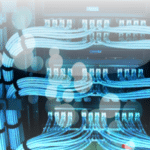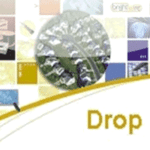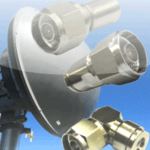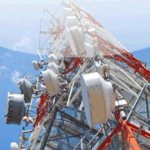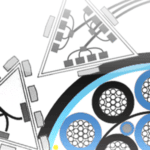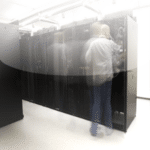PolyVinyl Chloride is a synthetic resin made from the polymerization of vinyl chloride.
Polyvinyl chloride, commonly abbreviated PVC, is the third-most widely produced polymer, after polyethylene and polypropylene.
PVC is commonly used as the insulation on telecommunications cables, twisted pair, coax and fiber jackets; PVC used for this purpose needs to be plasticized.
In a fire, PVC-coated wires can form hydrogen chloride fumes; the chlorine serves to scavenge free radicals and is the source of the material’s fire retardance. While HCl (Hydrogen chloride) fumes can also pose a health hazard in their own right, HCl dissolves in moisture and breaks down onto surfaces, particularly in areas where the air is cool enough to breathe, and is not available for inhalation. Frequently in applications where smoke is a major hazard (notably in tunnels and communal areas) PVC-free cable insulation is preferred, such as low smoke zero halogen (LSZH) insulation or Plenum cable.

